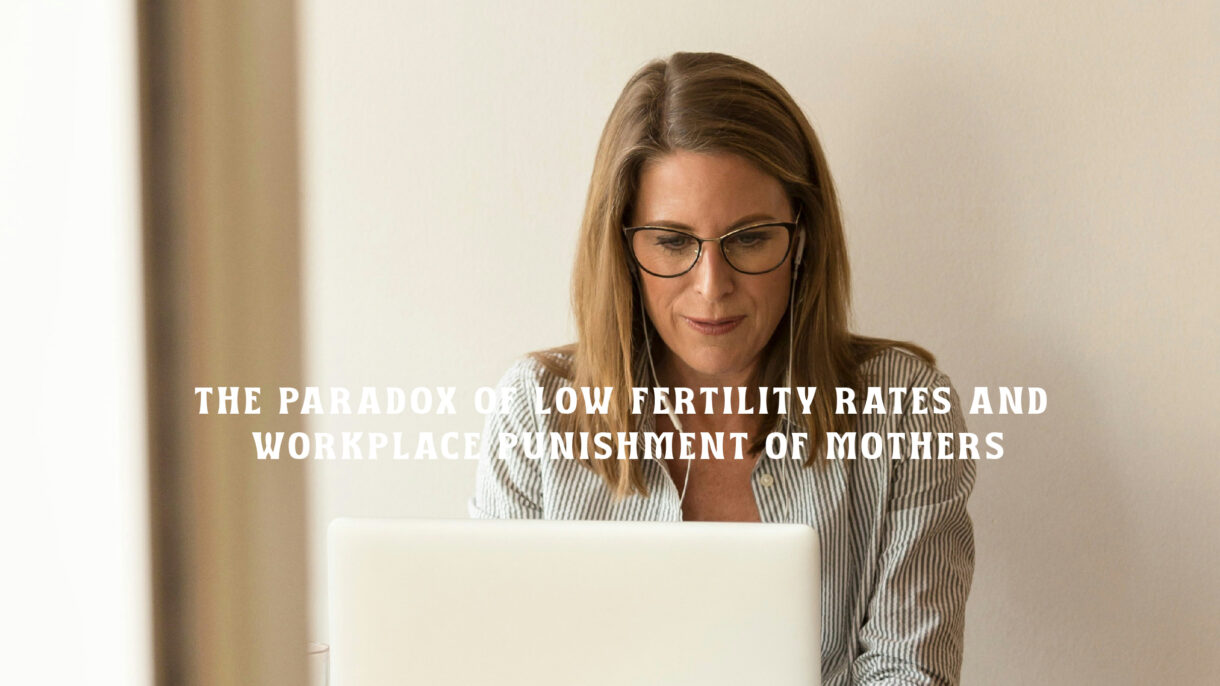
Despite historically low fertility rates in many developed countries, the workplace continues to present significant challenges for mothers. This paradox raises critical questions about societal values, economic structures, and the cultural perceptions of motherhood. Understanding why workplaces often “punish” mothers despite the demographic shifts related to declining birth rates requires an examination of systemic biases, inadequate policies, and cultural attitudes toward gender and family.
The Current Landscape of Fertility Rates
Many developed nations, including Japan, South Korea, and several European countries, are experiencing fertility rates that fall below the replacement level of 2.1 children per woman. This demographic trend is influenced by various factors, including economic instability, housing costs, and changing societal values. In this context, one might expect workplaces to become more accommodating to mothers, recognizing their crucial role in addressing these demographic challenges. However, the reality often tells a different story.
Systemic Barriers and Biases
- Cultural Attitudes: Despite lower fertility rates, many cultures still harbor traditional views about gender roles, which often place the burden of child-rearing primarily on mothers. This can lead to a perception that mothers are less committed to their careers, even if they are equally or more qualified than their male counterparts.
- Bias in Hiring and Promotion: Research indicates that mothers often face discrimination in hiring and promotion processes. Employers may unconsciously associate motherhood with reduced productivity or availability, leading to biased decision-making. This “motherhood penalty” can result in lower wages and fewer opportunities for advancement compared to fathers or childless employees.
- Inadequate Parental Leave Policies: While some countries have made strides in implementing parental leave policies, many workplaces still lack sufficient support for parents. Short leave periods, lack of job protection during leave, and stigma associated with taking time off can discourage mothers from fully participating in the workforce.
Economic Structures and Challenges
- Workplace Flexibility: Many industries remain rigid in terms of work hours and locations, making it difficult for mothers to balance their professional and personal responsibilities. While flexible work arrangements can help, they are not universally available, and those who request flexibility may face negative repercussions.
- Cost of Childcare: The high cost of childcare can deter mothers from returning to work or force them into lower-paying jobs that offer more flexible hours. When childcare is unaffordable or unavailable, it can create a cycle where mothers are financially punished for choosing to have children.
- Penalties for Time Off: Taking maternity leave can lead to long-term career penalties, including slower wage growth and reduced opportunities for promotion. The fear of falling behind can discourage mothers from taking the time they need for recovery and bonding with their children.
The Impact on Families and Society
- Mental Health: The stress of navigating a workplace that seems unwelcoming to mothers can take a toll on mental health. The pressure to prove oneself at work while managing family responsibilities can lead to burnout, anxiety, and other mental health issues.
- Family Dynamics: When workplaces penalize mothers, it can lead to strained family relationships. Mothers may feel forced to prioritize work over family, leading to feelings of guilt and inadequacy. This dynamic can affect the entire family structure, including children’s well-being.
- Societal Consequences: The punishment of mothers in the workplace can have broader implications for society. If women feel discouraged from having children due to workplace pressures, it can exacerbate the already low fertility rates, leading to long-term demographic and economic challenges.
Potential Solutions
- Improved Parental Leave Policies: To create a more supportive environment for mothers, businesses should implement comprehensive parental leave policies that provide sufficient time off and protect employees’ jobs during their absence. Policies should be designed to encourage both parents to take leave, promoting shared responsibilities.
- Flexible Work Arrangements: Companies should prioritize flexible work arrangements, such as remote work and adjustable hours, to help parents balance their professional and personal lives. This can help retain talent and reduce the burden on working mothers.
- Childcare Support: Providing on-site childcare or subsidizing childcare costs can alleviate some of the financial pressures on parents. This support can help mothers remain in the workforce while also ensuring their children are well cared for.
- Awareness and Training: Organizations should engage in training programs that raise awareness about unconscious biases related to motherhood. Promoting a culture of inclusivity and support can help dismantle stereotypes and create a more equitable workplace for all employees.
- Mentorship and Support Networks: Establishing mentorship programs and support networks for working mothers can provide them with the guidance and resources they need to navigate career challenges while raising children. These networks can foster a sense of community and support.
Conclusion
The persistence of workplace “punishments” for mothers, even amid declining fertility rates, reflects deep-rooted cultural attitudes and systemic biases that must be addressed. As societies evolve and the challenges of low fertility become more pronounced, it is crucial to create supportive workplaces that recognize and value the contributions of mothers. By implementing comprehensive policies and fostering a culture of equality, we can ensure that motherhood is not seen as a liability but as an integral part of a thriving workforce and society.

0 Comments